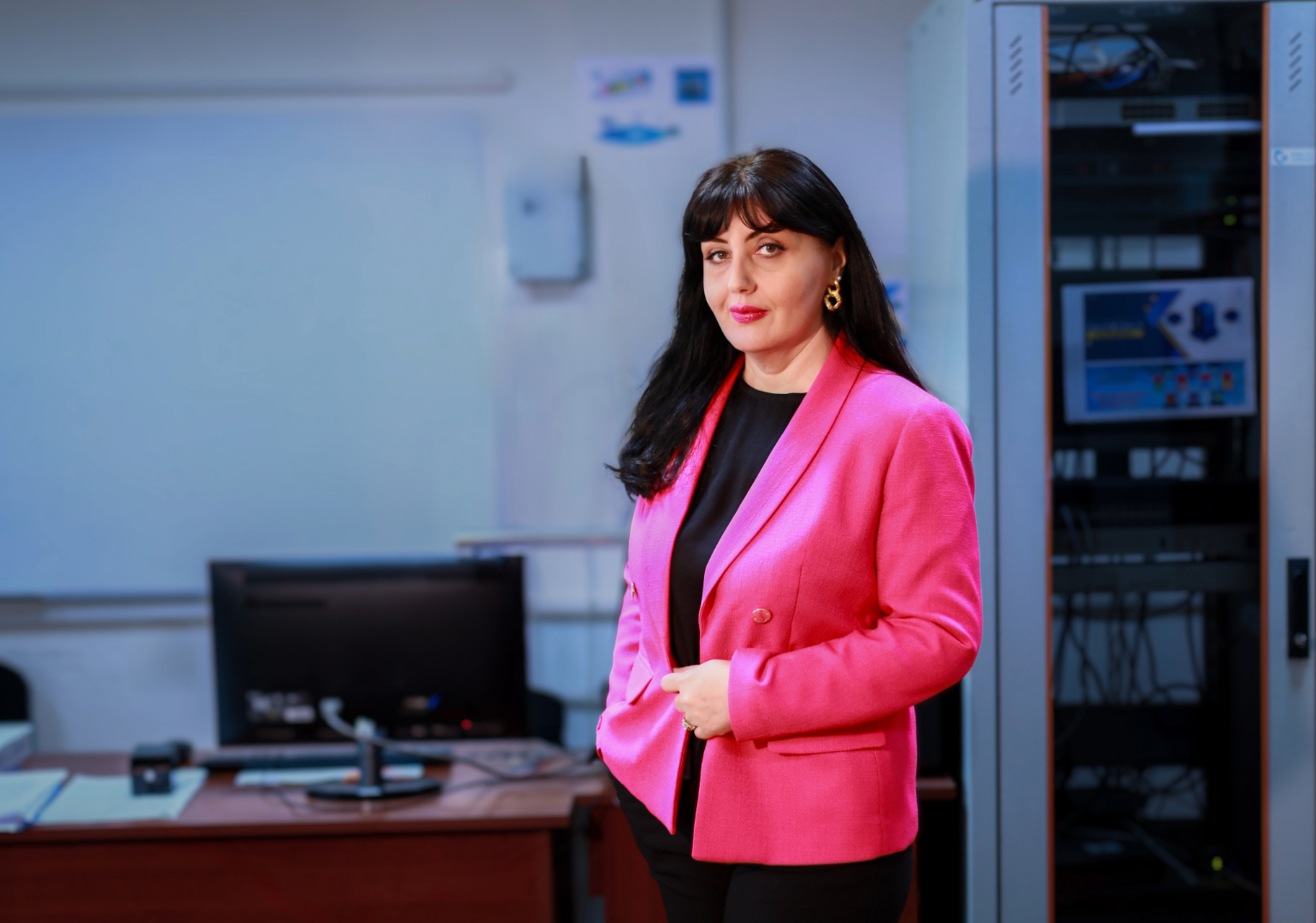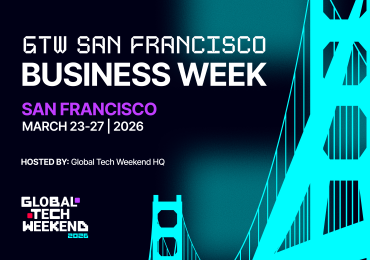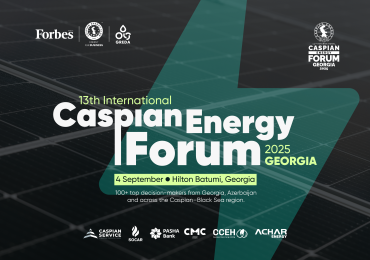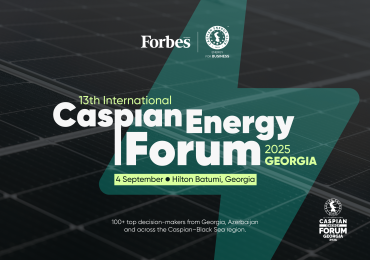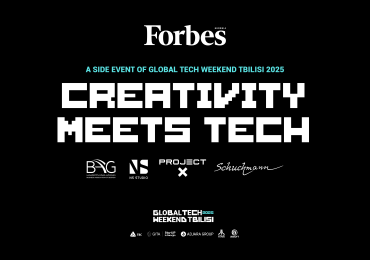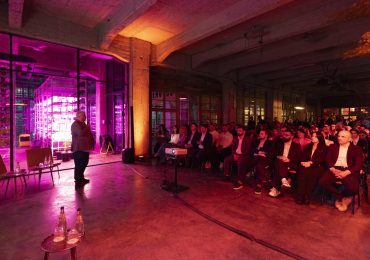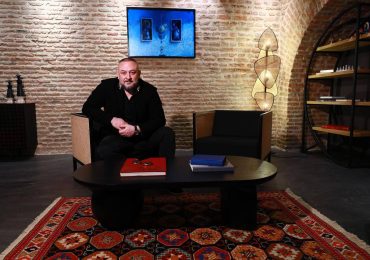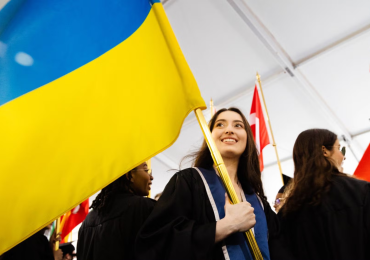For over 30 years, Professor Lali Khuntsaria has bridged the gap between Communication Technologies, Economics, and power Engineering, shaping both academia and industry in Georgia. With deep expertise in these fields, she combines the practical and theoretical worlds and nurturing the next generation of engineers at Georgian Technical University.
You have been in the engineering field for three decades. Let’s rewind a little—what sparked your interest in engineering in the first place?
It all started back in school, where I was particularly drawn to technical subjects, and solving complex mathematical problems became something of a hobby. During summer holidays, my backpack was always filled with mathematical problem collections. In the 80s, city and regional Olympiads were held in Tbilisi, and I participated—sometimes even winning. These experiences sparked my curiosity and presented exciting challenges. In the early 90s, I graduated with a medal from the Physics and Mathematics School of Advanced Studies.
When it came time to choose a university and profession, I took my father’s advice to heart. He was a professor of engineering, and with his guidance, I decided to pursue studies in the engineering-economic field. Today I have two master’s degrees, one in economics and the other in telecommunications engineering. I also pursued a scientific degree and in 2006, defended my dissertation at Georgian Technical University (GTU) and was awarded the degree of Candidate of Technical Sciences.
You have worked in both engineering management and telecommunications engineering, you are also involved in economic and energy issues. What links these fields together?
The common thread running through engineering management, telecommunications, and energy lies in the optimization of processes—specifically, increasing efficiency in management. These sectors are constantly evolving due to technological advances, and the need for effective planning, control, and management remains ever-relevant.
Innovative solutions, particularly in artificial intelligence (AI), offer unique opportunities for optimizing and enhancing the functioning of both telecommunications and energy sectors. Over the years, my colleagues and I have conducted various studies examining companies in both fields and published numerous articles in local peer-reviewed journals as well as in international publications.
Information and communication technology (ICT) plays a crucial role in helping companies better manage energy resources, improve efficiency, and reduce environmental impact. At the same time, the energy sector contributes to AI’s development by providing the necessary computational power. This reciprocal relationship offers new avenues for innovation, sustainability, and exciting research opportunities.
What have you gained from working in these diverse industries?
After completing my master’s degree, I worked in both telecommunications companies)and the energy sector. After defending my dissertation, I chose to further my career in the academic field as an associate professor at GTU. In 2011, I was offered a position at the Faculty of Telecommunication and Power Engineering at GTU, where I currently serve as Deputy Dean and Professor in the Department of Industrial Innovation and Operations Management.
In academia, I have had the privilege of sharing the practical knowledge and skills I have accumulated in both industries with students and colleagues. I believe that real-world experience is essential for effective scientific work. Interacting with practical cases and analyzing statistical data provides invaluable opportunities for conducting experiments and drawing relevant conclusions.
As a professor at GTU, you lead, design, and evaluate training courses. What role does the university play in your life?
The university holds a very special place in my heart, and I consider it a great responsibility to care for the future of students. Over the years, I have worked on various projects related to the efficient coding of digital signals and have been actively involved in the educational process at the faculty level, contributing to the development, modification, and accreditation of new educational programs, organizing open seminars, workshops and international conferences.
Together with my colleagues, we organize information sessions on continuing studies and research at European universities, helping students prepare for competition procedures and manage competition documentation. We place a significant emphasis on ensuring that our students and academic staff have opportunities for international exchange.
How have students’ interests changed in recent years? What topics are they most interested in researching?
Our students are extremely motivated and well-educated. I currently teach first-year students in the Bachelor’s program in Electrical and Electronic Engineering, and I’m pleased to see that they demonstrate strong general education, a quick grasp of material, and a keen interest in the engineering processes shaping their field.
They are particularly engaged in innovative technologies, such as 5G, AI, and embedded systems, and there is strong interest in renewable energy, energy-efficient technologies, hydropower, and electrical engineering. Many of our successful graduates choose to continue their studies at the master’s and doctoral levels, and we take an active role in supporting their internships and employment opportunities, working closely with employers and our faculty advisory board.
Could you share your experiences working on projects at foreign universities? What insights have you gained from these collaborations, and what changes are needed in Georgia to align with best practices observed in these countries?
The knowledge and skills we gain through international collaborations and educational projects are invaluable. In 2015 and 2017, with European Union funding (Erasmus Mundus and Erasmus+), I had the opportunity to work with colleagues at the University of Trento in Italy and at the Middle East Technical University in Turkey, as part of academic and administrative mobility.
Since 2018, I have been working on a new bachelor’s program: Electrical and Electronic Engineering, which was a challenging experience, especially since the project was supervised and coordinated by American experts from the US Accreditation Board for Engineering and Technology. In 2018, with financial support from MCC/Georgia and San Diego State University/Georgia, I had the opportunity to attend the ABET Accreditation Symposium and intensive training courses at San Diego State University (USA).
Speaking from my experience with these international academic projects, one of the key objectives in Georgia is to raise the quality of our universities’ educational programs to meet international standards. Introducing STEM degrees and implementing relevant quality frameworks is a challenge we continue to work on with our colleagues, drawing from the expertise and methodologies we have learned abroad.
You’ve published over 50 scientific studies, textbooks, and articles. Which one do you consider the most important? And are you currently researching anything?
My primary scientific research, and the subject of my dissertation, focuses on telecommunications, specifically the efficient coding of static and dynamic images. Some of my more recent works are based on experimental studies in this area. These have been published in high-impact international journals.
Since 5G is part of your research focus, what can you tell us about its implementation prospects? What role do future technologies play in the development of various fields, including energy?
5G is often seen as a platform that enables universal connectivity—anytime, anywhere, across all types of networks. It will facilitate services that are still unknown or in development. The demand for 5G wireless networks is vast, requiring a high level of flexibility in network design. It is a complex process that will continue to evolve, and it serves as both the foundation and the challenge for the development of next-generation technologies.
In the modern world, including in Georgia, 5G is already being implemented across technical, commercial, business, and intellectual sectors. As such, it plays a pivotal role in enabling wireless, high-speed data transmission that supports digital networks, which will be crucial for the future of telecommunications and energy development.
Why should young people be interested in engineering? What advice would you give to those just starting out in the field?
We are now living in the era of the Fourth Industrial Revolution, which brings with it a global economy driven by intelligent technologies—complete automation, machine learning, AI, and innovations for optimizing energy production, distribution, and consumption. Engineering presents a wealth of opportunities across a variety of industries, from cybersecurity to energy management, and the list of fields within engineering is endless. Each individual has unique interests and strengths, and young people must decide where they want to apply their talents. I would advise them to explore the many opportunities that exist in engineering, as it offers both challenge and fulfillment.
What are your goals for the future?
In today’s rapidly changing world, it may sound philosophical to talk about goals, but I believe that seeking new knowledge, expanding one’s experiences, and applying them meaningfully has always been my approach—and I think it will continue to be in the future.

